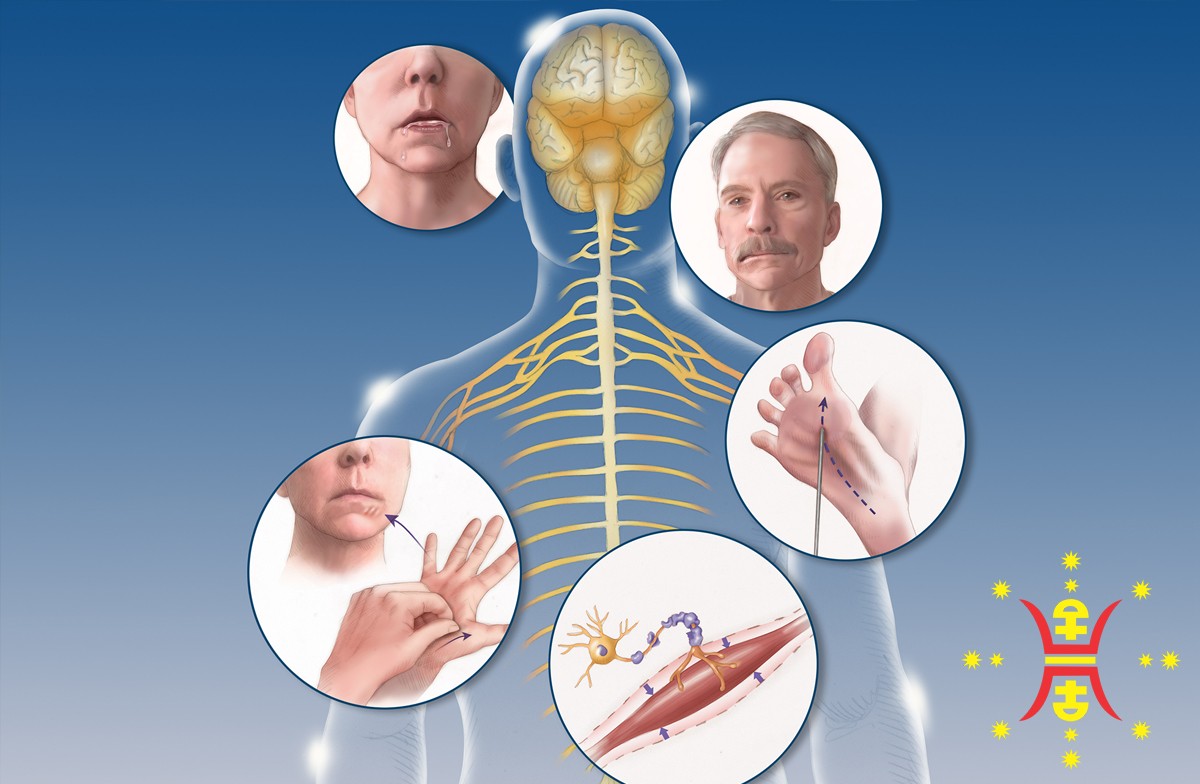Understanding ALS in Traditional Chinese Medicine: Causes, Symptoms, and Holistic Approaches
In Traditional Chinese Medicine (TCM), Amyotrophic Lateral Sclerosis (ALS) is often understood as a complex condition involving the impairment of vital energy and the flow of Qi (energy) and Blood in the body. TCM approaches ALS with the goal of balancing these energies, addressing specific symptoms, and supporting overall well-being. It's important to note that TCM is considered a complementary approach and should not replace conventional medical treatments. Here's a detailed overview:
- Causes in TCM:
- Blockage of Qi and Blood Flow: TCM attributes ALS to a blockage or stagnation of Qi and Blood in the channels, leading to muscle weakness and atrophy.
- Deficiency in Kidney Essence: TCM considers deficiencies in Kidney Essence, which is vital for nourishing the bone marrow and supporting the nervous system.
- Symptoms:
- Muscle Weakness and Atrophy: TCM recognizes the progressive muscle weakness and atrophy characteristic of ALS as a manifestation of Qi and Blood stagnation.
- Deficiency of Jing (Essence): Symptoms may include fatigue, difficulty swallowing, and speech impairment.
- Syndrome Differentiation:
- Liver Wind Phlegm Stagnation Syndrome: ALS is often associated with the Liver, and Wind-Phlegm stagnation can manifest as muscle twitching and weakness.
- Kidney Essence Deficiency Syndrome: ALS may be viewed as a manifestation of Kidney Essence deficiency, leading to weakened bones and marrow.
- Diagnosis:
- Pulse Diagnosis: TCM practitioners assess the pulse to identify the quality and strength of Qi and Blood circulation.
- Tongue Diagnosis: Examination of the tongue color, coating, and moisture helps in understanding the overall condition of the body.
- Observation of Shen (Spirit): Changes in mental and emotional well-being are considered in the diagnosis.
- Treatment Approaches:
- Acupuncture: Acupuncture is used to stimulate specific points to unblock Qi and Blood flow, promoting overall balance in the body.
- Herbal Formulas: TCM practitioners may prescribe formulas tailored to individual symptoms and syndrome differentiation, with herbs like Eucommia Bark (Du Zhong) and Rehmannia Root (Shu Di Huang).
- Qigong and Tai Chi: Gentle exercises such as Qigong and Tai Chi may be recommended to improve energy flow and enhance overall well-being.
- Dietary Helps:
- Nourishing Foods: TCM emphasizes a diet rich in nourishing foods, including bone broths, dark leafy greens, and foods that support Kidney Essence.
- Herbal Teas: Teas made from herbs like Dang Shen and Huang Qi may be suggested to tonify Qi.
- Cautions:
- Integration with Conventional Treatment: TCM is considered a complementary approach, and individuals with ALS should continue to follow the advice of their primary healthcare provider.
- Regular Monitoring: Regular communication and monitoring of symptoms are essential for an integrated and comprehensive approach.
- Precautions:
- Patient-Specific Approach: TCM treatment plans are individualized, taking into consideration the specific symptoms and constitution of the patient.
- Holistic Lifestyle Considerations: TCM practitioners may recommend lifestyle changes, stress reduction techniques, and other holistic approaches to support overall well-being.
It's crucial for individuals with ALS to work with a qualified TCM practitioner in conjunction with their primary healthcare team to ensure a coordinated and holistic approach to treatment. Always seek professional advice before making significant changes to your health management plan.
In Person With Heshoutang Natural Health Members
With Heshoutang Natural Health Online Members
Fill Out the Questionnaire by yourself
When you subscribe to the blog, we will send you an e-mail when there are new updates on the site so you wouldn't miss them.














Comments